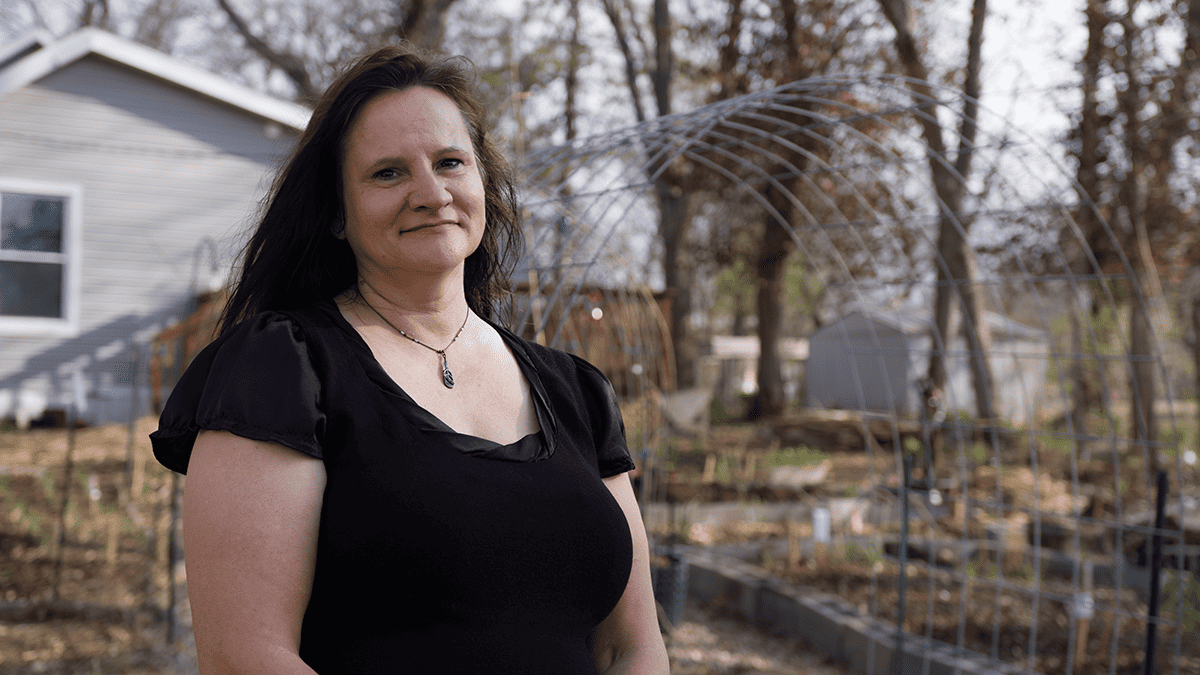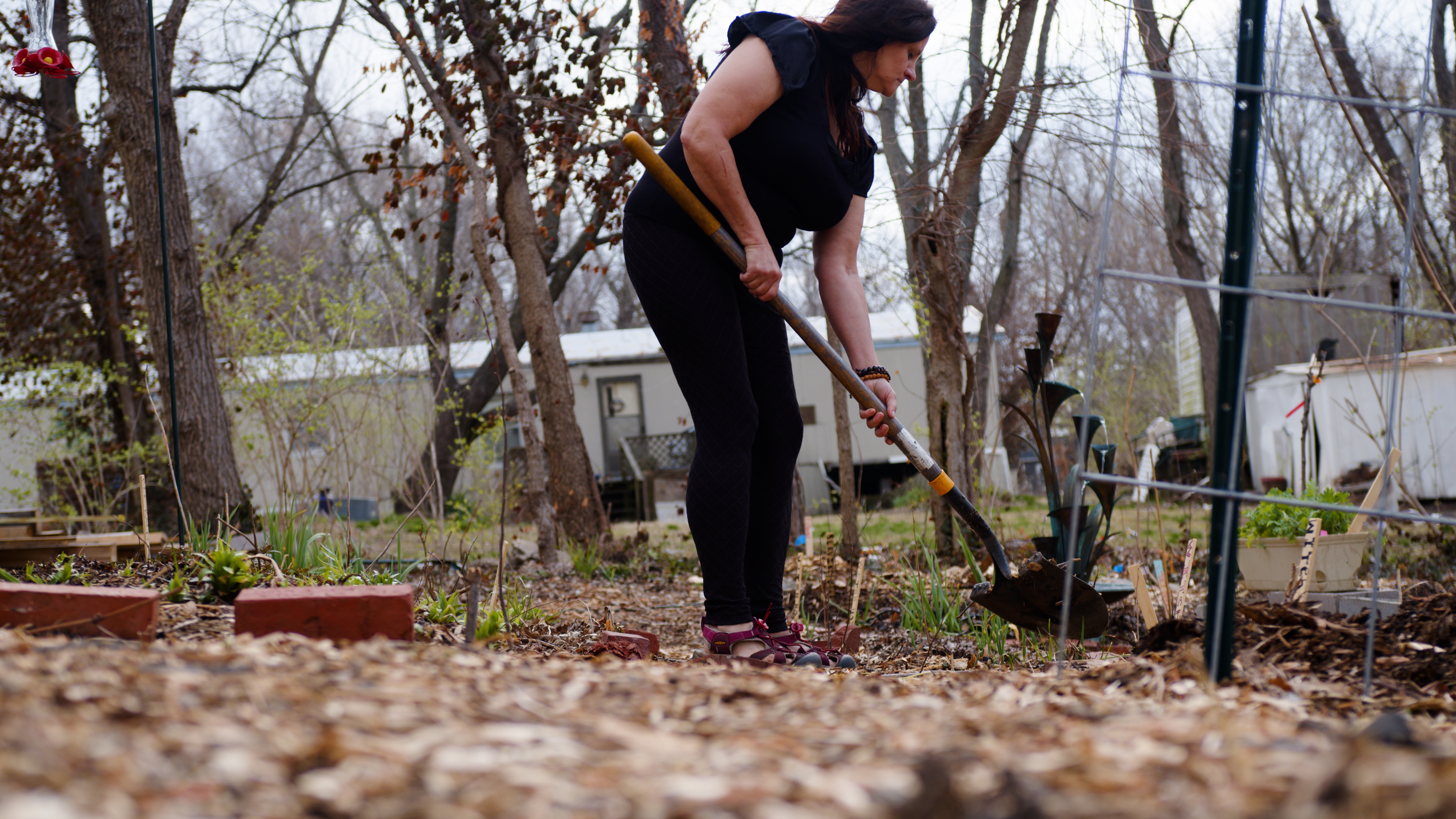 Case Info & Legal Team
Case Info & Legal TeamEllen Finnerty’s dream business of selling home-grown produce and home-raised honey at the farmer’s market is banned by the city of Ottawa, Kansas. She’s fighting back against Ottawa’s unconstitutional home-based businesses prohibitions with the help of Kansas Justice Institute.
The only thing standing between Ellen Finnerty and her dream business is the City of Ottawa, Kansas. Ms. Finnerty wants the opportunity to sell homegrown produce and home-raised honey at the local farmer’s market. But Ottawa prohibits any home-based business not “conducted entirely within a dwelling unit” and all home-based business involving animals.
Since gardens grow outside, and honeybees are animals, Ms. Finnerty is prohibited from using her own backyard to garden and safely raise honey, as a home-based business. It’s a crime in Ottawa to earn a living from your own garden or beehive. For each day a person operates a safe, but prohibited home-based business, the potential penalty is 6 months in jail and a $500 fine. Nothing in the law prohibits a homeowner from gardening or raising honey in her backyard as a hobby.
Ellen Finnerty is a 52-year-old single mom who works full-time as a machine operator. To help support her family, Ms. Finnerty wants the opportunity to sell produce from her backyard garden and home-raised honey at the local farmer’s market. But she can’t. Ottawa outlaws any home-based business not “conducted entirely within a dwelling unit” and all home-based businesses involving “animal care of any type” where she lives. Since gardens grow outside, and honeybees are animals, Ms. Finnerty is prohibited from using her own backyard to garden and safely raise honey as a home-based business.

“I want to produce honey. I want to produce local honey, and I want to be able to sell it at the local farmer’s market,” Ellen Finnerty said. “All of these years of talking and daydreaming and planning, and now I’m told I can’t. It’s very disappointing.”
Ellen dreamed about growing an organic garden in her backyard and keeping a few hives of bees to pollinate the garden and produce honey. She hoped that this would be a good opportunity to bond with her daughter and supplement her income as she nears retirement. She planned her garden, purchased plants, and enrolled in beekeeping courses at a local community college. Ellen has been a rule follower her entire life, so before she invested money in beekeeping equipment, she reached out to the City of Ottawa to find out if she needed a permit to start her home-based business. But the City told her that producing home-raised honey violated Ottawa’s highly restrictive home-occupation ordinance.
Ottawa’s home-based business prohibitions violate Ms. Finnerty’s right to earn an honest living, her right to use her own property for a peaceful, productive, and benign purpose, and her right to be treated equally under the law.
The government should not be able to unreasonably restrict home-based businesses. Startup costs are less, and they oftentimes create jobs that otherwise might not exist. For many, the convenience, affordability, and flexibility of a home-based business is the only practical path to being an entrepreneur. From piano teachers to dressmakers, from lawyers to web designers, countless individuals across the country and Kansas have pursued their dreams through a home-based business.
Ottawa’s home-based business prohibitions violate Ms. Finnerty’s right to earn an honest living, her right to use her own property for a reasonable residential purpose, and her right to be treated equally under the law.
Benjamin Franklin once wrote that “[t]here cannot be a stronger natural right than that of a man’s making the best profit he can of the natural produce of his lands.”
Ellen wants to do just that, to turn her backyard into an all-natural, organic “edible garden,” which she could share with the entire community at the local farmer’s market. While Ellen is free to grow produce in her backyard, Ottawa says that if she sells the produce grown in her backyard, she is a criminal since her business is not located entirely inside the house.

From New York City to Los Angeles and countless cities in between, urban and suburban beekeeping has thrived without producing any danger or nuisance. In addition to providing the beekeeper herself with honey, bees serve a vital role in pollinating plants throughout the community. Among the cities in Kansas that allow home production of honey are Wichita, Lawrence, Prairie Village, Overland Park, Leawood, Columbus, Phillipsburg, Derby, and Kansas City, Kansas. Ottawa itself has no law prohibiting the keeping of bees as a hobby.
People have gardened and safely raised honey for thousands of years. The domestic honeybee is gentle and docile. Honeybees sting in defense of their hives as a last resort. Honeybees typically ignore humans unless they are stepped on, swatted, or provoked.
“Everyone loves farmer’s markets and locally sourced honey. Ellen shouldn’t need a lawyer to sell homegrown produce and home-raised honey at the farmer’s market.”
– Litigation Director, Samuel MacRoberts
The Kansas Constitution protects the right to garden and safely produce local honey, as a home-based business.
Represented at no charge by Kansas Justice Institute, Ms. Finnerty is suing the City to vindicate the rights of Ellen, and all Kansans, to be free from unreasonable government regulations.
“Everyone loves local honey. It shouldn’t be a crime to safely produce it.”
– Litigation Director, Sam MacRoberts








